Immune checkpoint inhibitors, a type of cancer treatment that helps immune cells identify and kill tumor cells, have been a major breakthrough in the treatment of many cancer types. Unfortunately, not all patients respond to this immunotherapy. Dr. Hughes [Robert Black Fellow] is studying how gut microbes improve response to immune checkpoint inhibitors. The bacterium Akkermansia muciniphila lives in the gastrointestinal tract and has been shown to improve response to immune checkpoint inhibitors via poorly understood mechanisms. Dr. Hughes aims to discover how A. muciniphila improves response to cancer immunotherapies and to design microbe-based therapeutic strategies that will further enhance cancer immunotherapy responses. Dr Hughes received her PhD from UT Southwestern Medical Center and her BS from Baylor University.
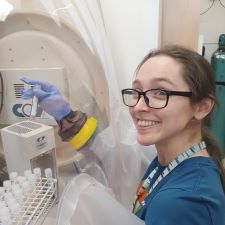
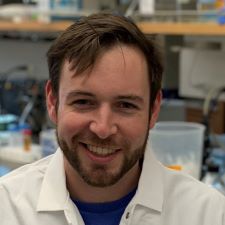
Macrophages are specialized immune cells responsible for “eating” harmful cells, presenting antigens to T cells, and initiating inflammation by releasing signaling molecules called cytokines. Macrophages could potentially be activated to attack tumor cells, but for reasons that are currently unclear, they instead signal for the tumor to grow faster and become more invasive. Dr. Courvan [HHMI Fellow] is investigating how macrophages respond to the low-oxygen environment inside tumors, and specifically how they regulate gene expression through post-transcriptional mechanisms in low-oxygen conditions. With this research, he hopes to uncover new ways to leverage the body's immune system against cancerous cells. Dr. Courvan received his PhD from Yale University and his BS from the University of Connecticut.
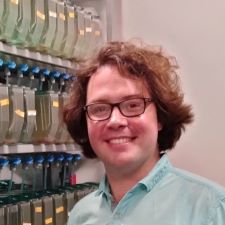
Evidence that aging is driven by defined, regulated processes (rather than simple “wear and tear”) has sparked hope that we might target these processes to fight age-related diseases. A particularly exciting example is the regulation of protein homeostasis, or the balance between protein synthesis, folding, and degradation. Protein homeostasis is deregulated in both cancer and normal aging, but the underlying mechanisms remain elusive. Dr. Boos will use the short-lived African turquoise killifish as a new model organism to study how different cells and tissues respond to protein misfolding, how they coordinate their responses, and how aging influences these pathways. This research will not only unravel fundamental mechanisms of aging, but also inform new strategies to fight multiple types of cancer. Dr. Boos received his PhD and his B.Ed. from the University of Kaiserslautern.

Dr. Ardy [Robert Black Fellow] is investigating the genetic determinants that govern the behavior of fibroblasts, a type of connective tissue cell that has been implicated in arthritis, heart disease, and cancer. Activated fibroblasts can exacerbate disease through various mechanisms, including remodeling tissue architecture and modulating the immune system. Dr. Ardy plans on using state-of-the-art genetic tools, including CRISPR inhibition and activation coupled with single-cell RNA sequencing technology, to uncover the proteins and pathways that regulate fibroblast behavior and thereby inform the development of new targeted cancer treatments. Dr. Ardy received his PhD from the Medical University of Vienna and his BS from the University of California, Los Angeles.
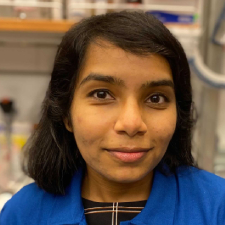
Dr. Thawani [Merck Fellow] studies selfish DNA sequences—so called because they copy and paste themselves within the human genome despite offering no specific fitness advantage. Dr. Thawani will utilize advanced methods such as cryo-electron microscopy to reveal the cellular machinery that assists these selfish elements and thus delineate their mechanism of mobility. She will use this insight to engineer new genome editing technologies to precisely insert large genes at user-specified sites in a variety of human cell types. This general technology will not only translate directly into new gene therapies, but also result in wide-ranging applications in synthetic biology. Ultimately, this work will contribute to treatment for many cancer types, including improved CAR-T therapies for blood cancers.
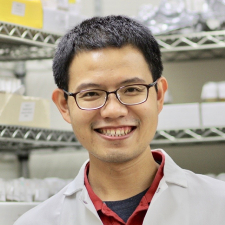
Dr. Chang is studying protamines—short, positively-charged proteins that condense DNA into chromatin and regulate gene expression in sperm nuclei. While eukaryotic cells use histones to package genomes in a way that allows access for transcription and replication, sperm cells must package their genomes more tightly. For this, many animals deploy protamines instead of histones. Despite sharing certain functions with highly conserved histones, protamines have independently arisen in evolution multiple times and are continuing to rapidly evolution. Using Drosophila fruit fly species as a model, Dr. Chang studies how sperm chromatin regulates gene expression and reproductive fitness. Additionally, although protamine expression is typically limited to testes, their misexpression has been observed in many cancers, indicating an opportunity for therapeutic intervention.
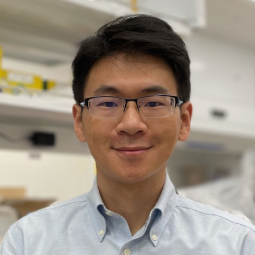
Dr. Tai studies bacterial biofilms or aggregates of bacterial cells in an extracellular matrix. Biofilms play a critical role in many health and industry settings. Biofilm-forming bacteria and imbalance in patients’ gut microbiota have been found to correlate with cancer development, and cancer patients receiving therapy frequently suffer from bacterial infections. From the unique perspectives of microbiology, soft matter physics, and ecology, Dr. Tai aims to decipher how, at the single bacteria cell level, heterogeneities in cell shape, organization, and gene expression constitute the function and development of their collective communities: biofilms. His work is expected to deepen our understanding of bacterial biofilms and ultimately contribute to therapeutic strategies.
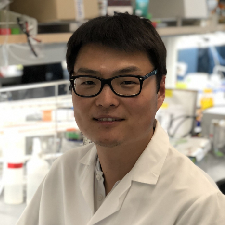
Dr. Gu [Fraternal Order of Eagles Fellow] is deciphering the combinatorial code of mammalian transcription regulation. The precise and robust regulation of gene expression is typically achieved through a combination of multiple transcription factors. However, we lack understanding of how a mammalian transcription system perceives, processes, and presents combinations of transcription factors. Dr. Gu will combine quantitative modeling and synthetic approaches to analyze the complex interactions among natural transcription regulatory proteins and apply the principles learned to engineer a programmable transcriptional platform with tunable logic. This work promises to deepen our understanding of mammalian transcription regulation and unlock new capabilities for emerging cell-based therapeutics.
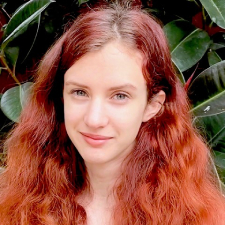
Dr. Squyres [National Mah Jongg League Fellow] is using quantitative microscopy and cell biology approaches to study how bacteria in biofilms coordinate their behavior in space and time. Biofilms are dense, multicellular communities of bacteria embedded in an extracellular matrix. Biofilms often form during bacterial infections, resulting in infections that are difficult to treat and resist antibiotics; cancer patients are at particular risk for these types of infections. Dr. Squyres is currently investigating how the release of extracellular DNA, a key component of the biofilm matrix, is coordinated during biofilm development. Greater understanding of how bacteria function in biofilms can lead to new approaches to target these treatment-resistant infections.
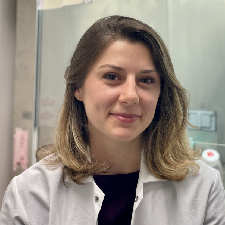
Myelodysplasia and acute myeloid leukemia are blood cancers with a poor prognosis. At the root of these malignancies are cells harboring mutant forms of proteins with dysfunctional activity which results in abnormal cell behavior and drives disease progression. The focus of my project is the development of new therapeutics that precisely identify cells with mutant forms of the proteins and, by harnessing their aberrant biological activity, causes those cells to self-destruct. These selective therapeutics will be able to kill cancer cells but leave the healthy cells intact proving more effective and having less side-effects than the chemotherapies currently in use.
